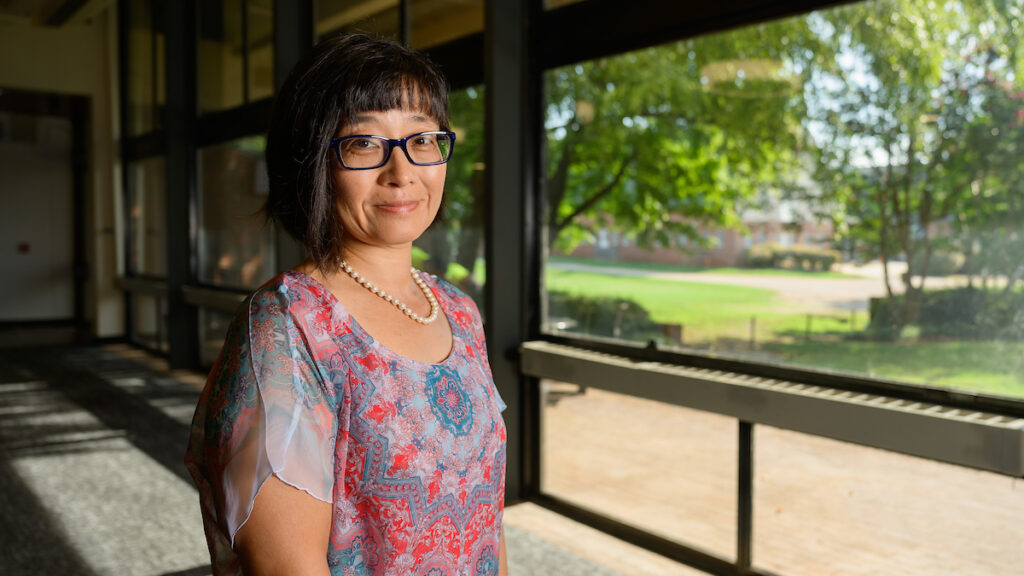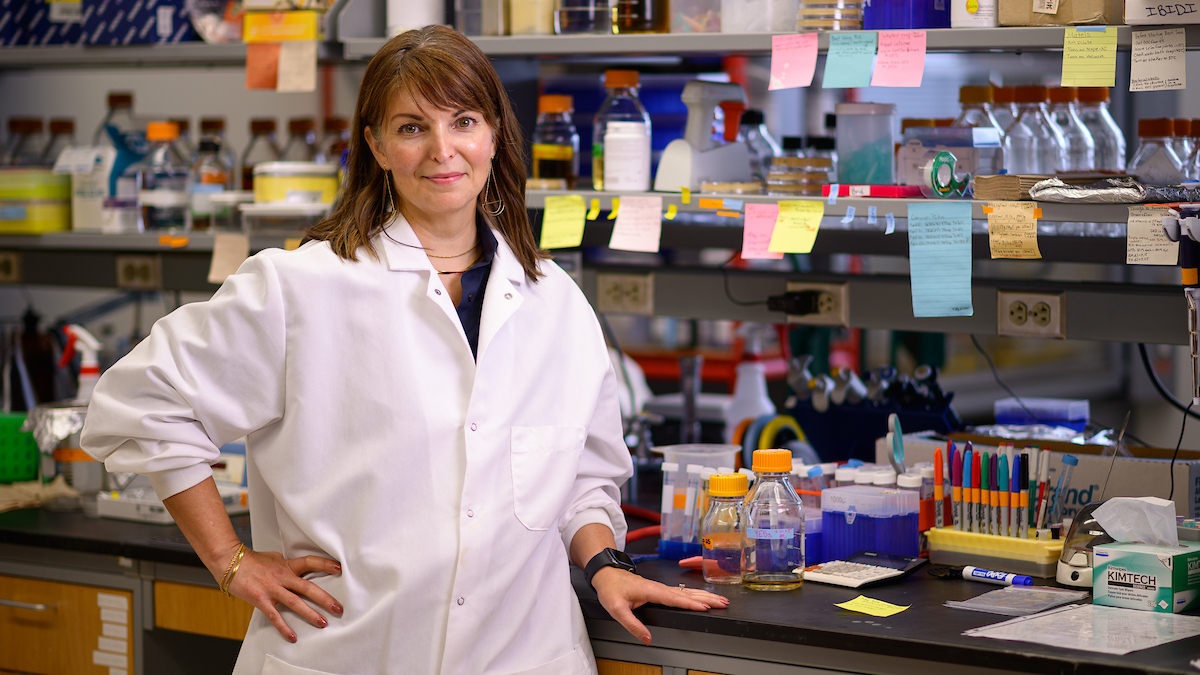NC State Welcomes Alum as New Leader of Department of Population Health and Pathobiology

Dr. Kaori Sakamoto, a pathologist at the University of Georgia who received her DVM from the NC State College of Veterinary Medicine, is the new leader of NC State’s Department of Population Health and Pathobiology.
She began her role in Raleigh on July 1.
“I am delighted that Dr. Sakamoto accepted the position of department head and so very proud that she is an NC State CVM alumna,” says Dr. Kate Meurs, dean of the NC State College of Veterinary Medicine. “It has been so inspiring to see our alumni returning to the college as faculty and to see them take on leadership roles. I think the founders of the school would be so proud to see their students taking over the leadership reins! Dr. Sakamoto is a passionate mentor and teacher who has been recognized numerous times for her teaching and leadership skills. We are thrilled to have her.”
Sakamoto, a Boston-area native, completed her anatomic pathology residency at Purdue University and a Ph.D. at Cornell University.
“NC State hired me for my training, expertise and mentoring so what I really want to do is to help our people feel supported and develop them in whatever way they want to grow professionally,” Sakamoto says. “The PHP department can be very challenging because the interests are so broad. Helping everybody to go in a positive direction is going to be my first focus.”
The Department of Population Health and Pathobiology includes programs in epidemiology and public health, microbiology and immunology, parasitology, pathology, poultry health management, ruminant health management and swine health and production medicine.
Its faculty have heavy commitments in teaching, research and clinical service,, Sakamoto says. As a pathologist, she has been involved in research with numerous principal investigators, examining tissues, cells, fluids and organs in their diverse studies, some funded with grants from the National Institutes of Health and from the Cystic Fibrosis Foundation.
Sakamoto’s successful career path was the direct result of mentorship she received at NC State, she says, and she’s eagerly anticipating getting to pay that forward.
She had no intention of going to veterinary school until she worked with Dr. Greg Lewbart, a professor of aquatic, wildlife and zoological medicine at the veterinary college, as she was getting her master’s degree in fish physiology at NC State. She recalls visiting Lewbart to run diagnostics on water samples to understand why fish were getting sick.
“It was just so rewarding to get answers,” she says.
Once she entered veterinary school, she also had no intention of going into pathology until she was inspired by professors in the NC State College of Veterinary Medicine’s pathology department.
“I went to the vet school wanting to be an aquatic vet, and sophomore year I had pathology, and they were just amazing teachers,” Sakamoto says. “I just fell in love with pathology. I love puzzles and detective work and mysteries, and so it’s the perfect job for that. You get a dead animal and you take it apart and you try to figure out why it died or why it got sick. It’s just so challenging and interesting, and every day is different.”
Sakamoto, who received her DVM in 1999, started the first pathology club for veterinary students at NC State. Its members were called “path heads.” There weren’t student chapters of the American College of Veterinary Pathologists at the time, either, she says, although chapters were eventually created at NC State and other veterinary colleges.
“My class was so passionate about pathology, and we started a club because we were like, well, there’s a club for everything else,” she says, noting that she won a student leadership her third veterinary year because of her pathology club efforts.
Sakamoto’s husband, Dr. Andrew Moorhead, will join NC State’s Department of Clinical Sciences in January. Moorhead, also an NC State DVM alumni, is a Diplomate of the American College of Veterinary Microbiologists in parasitology.
While the college conducted a national search for a new leader for the Department of Population Health and Pathobiology, Dr. Ronald Baynes, a professor of pharmacology, served in an interim role.
“I am also so very grateful for all of the assistance of Dr. Baynes for his efforts as the interim department head,” Meurs says. “His skills and willingness to stay on in this critical role until July were invaluable.”


